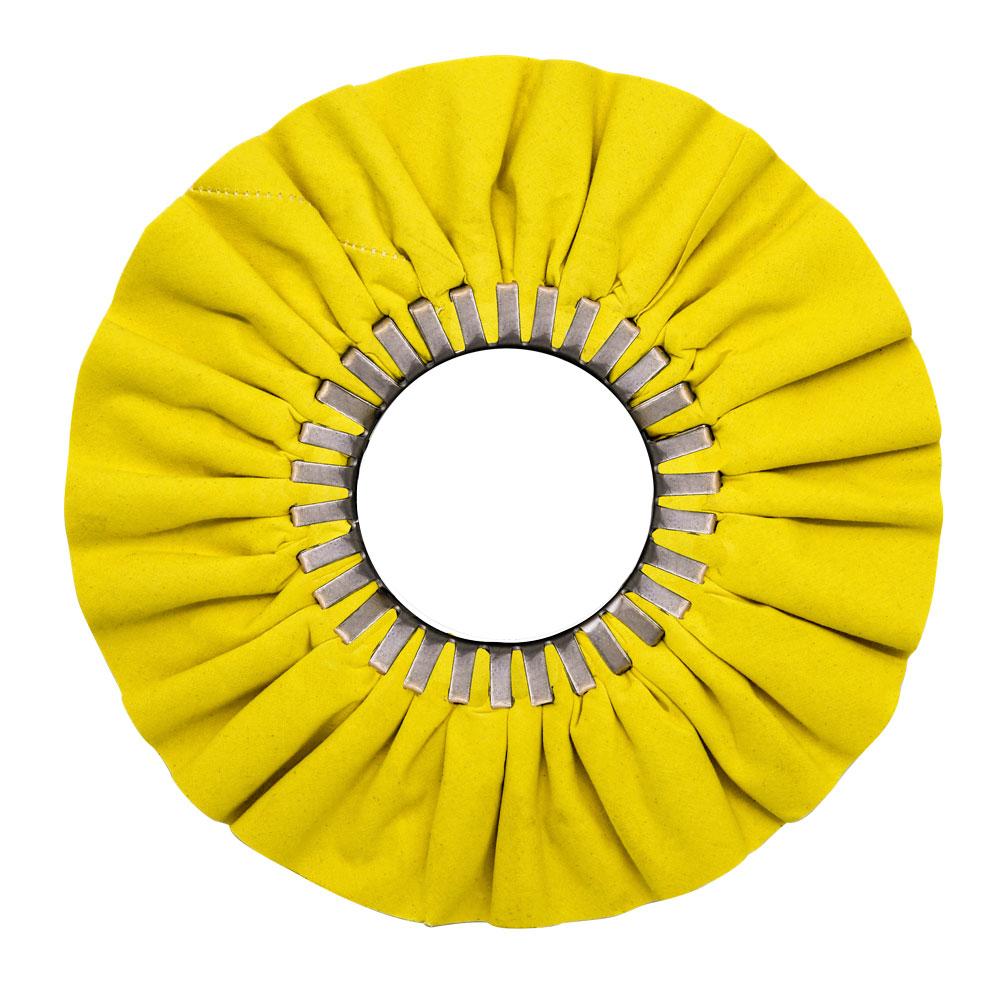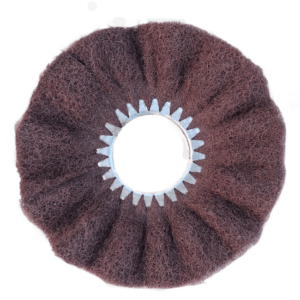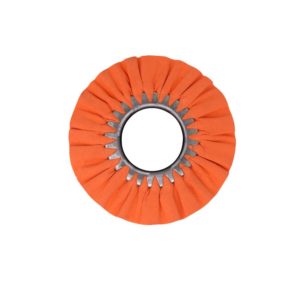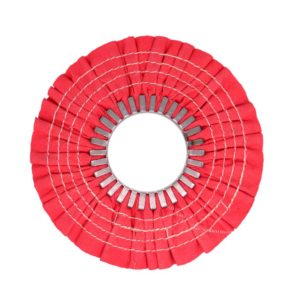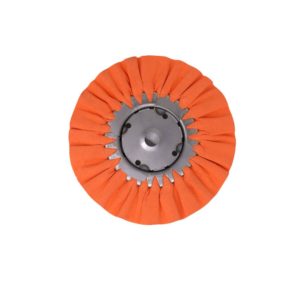Airway Buffing wheel YELLOW No Center Plate 10 inch
29.95$
Yes! This is called edge buffing and the method is often used when polishing metal with an angle grinder, a buffing wheel, and compound.
Yes! This is called edge buffing and the method is often used when polishing metal with an angle grinder, a buffing wheel, and compound. See below:
What size buffing wheel should I use for polishing?
We recommend a 9″ airway buffing wheel size for most—it offers a great balance of maneuverability and life of the buffing wheel. For greater detail work, consider an 8″ buffing wheel. The 10″ and 12″ (custom size) are often so large as to only to be used by professionals on large flat work, such as a fuel tanker. Businesses, professionals, and skilled users may find that 10″ Airway Buffing Wheels are ideal for them because of the longer life of the wheel. Some users purchase 10″ Airway Buffs with the intention of wearing them down to 8″ or 9″ to use for their detailed work, as opposed to buying multiple sizes.
Pairing buffing wheels with polishing compound correctly:
Aluminum Metal Polishing
Polishing aluminum with our airway buffing wheels are typically done in a two-step process. We recommend pairing our Brown Tripoli Metal Polishing Compound with our orange airway buffing wheels as the first step.
For the second step in polishing aluminum, we would want to pair our yellow airway buffing wheel with our Green Rouge Metal Polishing Compound.
Stainless Steel Metal Polishing
Polishing stainless steel with our Airway Buffing Wheels is typically a two step process. The first step is to pair our red airway buffing wheel with out Black Magic Compound. The second step involves using a Pink buffing wheel with our Yellow Deluxe Compound. For an extra show-shine finish, some use a white buffing wheel with our Blue Rouge Metal Polishing Compound at no more than 2,200 RPM.
How to polish aluminum wheels:
To polish aluminum and stainless steel wheels, pair the appropriate metal buffing and polishing compound (as listed above) with a smaller diameter airway buffing wheel to get into the hard-to-reach areas of the wheel.
Pro tip: Always rake your buffing wheels.
How do I use a buffing wheel rake?
The buffing wheel should be spinning at it’s normal speed and the rake should be held securely when held up to a stationary bench grinder or lathe. On a grinder, please exercise caution when raking. We recommend using your feet to hold the rake to the ground and holding the angle-grinder to it.
Why should I rake my buff?
Raking your buff removes hardened and burned on polishing and buffing compound from the edges of your buffing wheel. Compound build up can reduce the efficiency of the buffing wheel while also creating a rougher surface. If you notice a significant decrease in the residual metal dust produced when buffing, rake the buffing wheel and reapply a small amount of metal polishing compound.
